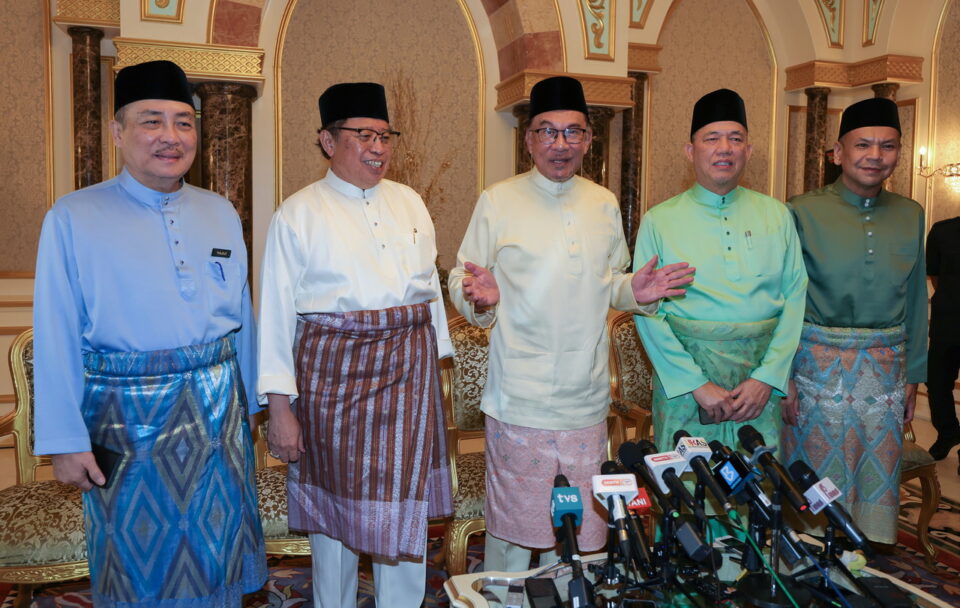KUALA LUMPUR, Feb 26 — Deputy Prime Minister Datuk Seri Fadillah Yusof assured that the issues related to the Malaysia Agreement 1963 (MA63) will be resolved in a collaborative and inclusive manner to benefit both Sabah and Sarawak.
He said although he is from Sarawak, it does not mean that the resolution would be to the state’s advantage.
“I am Deputy Prime Minister, not only for Sarawak but for all.
“The MA63 committee also consists of an implementation action council led by the Prime Minister (Datuk Seri Anwar Ibrahim) and its members include Sarawak Premier (Tan Sri Abang Johari Tun Openg) and the Chief Minister of Sabah (Datuk Seri Hajiji Noor),” he told Bernama in an interview recently.
Fadillah, who is responsible for ensuring the outstanding issues concerning the MA63 are resolved, said the implementation of Sabah and Sarawak’s demands which were different, also involve agencies from the Federal and state governments.
“The two states have different backgrounds, the laws in both states are different …that is why the outcome of the implementation will not depend on the (existing leader’s) position as this has to do with the state’s background and as such, Sarawak’s demand could be resolved much earlier than Sabah,” he said.
Explaining matters in MA63 that have yet to be implemented even though the agreement was signed in 1963 by Malaya (now Peninsular Malaysia), Sabah, Sarawak and Singapore (which later left Malaysia in 1965), Fadillah said it involved an annexe that contained findings and recommendations by the Inter-Governmental Committee (IGC).
“There were recommendations that should have been followed with the formation of Malaysia, that’s what Sarawak and Sabah are demanding to be implemented. There were also matters that were ignored and which should be under the jurisdiction of Sabah and Sarawak, for example, those under the Continental Shelf Act.
“If we look at the border for Sarawak, it used to be 200 km, the definition of the continental shelf includes the land beneath, which means that all the oil and gas are rightfully Sarawak’s, but when there was an emergency, the power to make laws came under the Federal government,” he said.
Admitting that his appointment to bear the responsibility is a start for national integration, Fadillah added that it is also a way forward.
“It is a blessing in disguise… the current political situation and the bigger demands from Sabah and Sarawak for inclusiveness, so this could be the way forward. And that is why I think the Yang di-Pertuan Agong Al-Sultan Abdullah Ri’ayatuddin Al-Mustafa Billah Shah had actually yearned for unity, and power sharing was one way of achieving it.
“With power sharing, maybe the understanding of the inspiration for the formation of Malaysia can be translated, not only in the political context but also in all aspects including positions in the government, sharing economy, the wealth of the nation, in terms of equality and togetherness in socioeconomic development,” he said.
Meanwhile, Fadillah who is also Plantation and Commodities Minister said he was pleased that Al-Sultan Abdullah plans to drive along the Pan Borneo Highway in September in conjunction with Malaysia Day celebrations, starting from Telok Melano, Sarawak towards Sabah via Brunei.
“By expressing this desire, this shows His Majesty’s concern for the people amid the political crises going on in the country.
“During his term as the Yang di-Pertuan Agong, various political crises occurred but His Majesty was able to resolve them, find a way out to ensure political stability and now he wishes to go on a tour of the (Pan Borneo) highway,” he said.
On February 13, Al-Sultan Abdullah, in his royal address when opening the second session of the 15th Parliament expressed his desire to drive along the highway.
Commenting on the construction of the highway, the former Senior Works Minister hoped the Sarawak and Sabah portions of phase one of the Pan Borneo Highway project would reach 98 per cent and 70 per cent completion, respectively, by September.
“There are two portions one of which is in Bukit Begunan Sri Aman, Sarawak, that could not be completed due to utility transfer and land movement issues that require new engineering work,” he explained.
— Bernama





